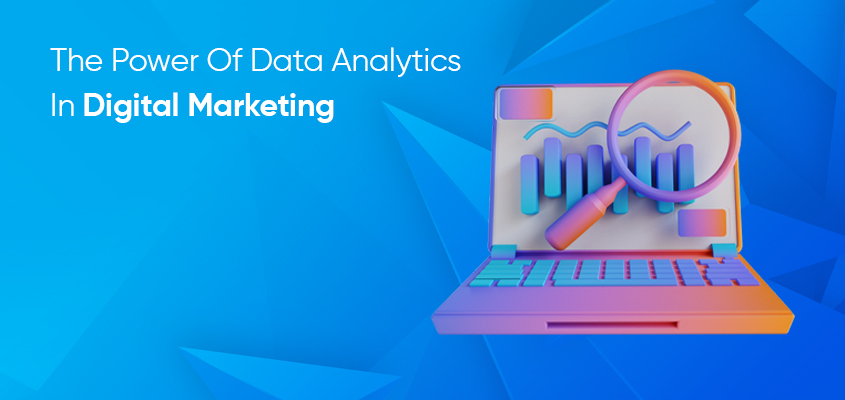
Data analytics plays a crucial role in digital marketing, empowering businesses to make informed decisions and optimize their marketing strategies. It involves collecting, analyzing, and interpreting data from various sources to gain insights and drive effective marketing campaigns. Here are some key aspects highlighting the power of data analytics in digital marketing:
Targeted Audience:
Data analytics enables marketers to identify and understand their target audience better. By analyzing demographic information, online behavior, preferences, and purchasing patterns, businesses can create detailed buyer personas. This information helps in tailoring marketing messages, selecting appropriate channels, and delivering personalized experiences, resulting in higher engagement and conversion rates.
Performance Measurement:
Data analytics allows marketers to measure the performance of their marketing efforts accurately. Key performance indicators (KPIs) such as website traffic, click-through rates, conversion rates, and customer lifetime value can be tracked and analyzed. By monitoring these metrics, marketers can identify areas of improvement, optimize campaigns, and allocate resources more effectively.
Customer Insights:
Analyzing customer data provides valuable insights into customer behavior, preferences, and needs. By leveraging data analytics tools, marketers can uncover patterns and trends, identify customer pain points, and gain a deeper understanding of their customers’ journey. These insights help in developing effective marketing strategies, refining product offerings, and delivering personalized experiences that resonate with customers.
Predictive Analysis:
Data analytics enables businesses to predict future trends and outcomes based on historical data. By utilizing predictive analysis techniques, marketers can anticipate customer behavior, market trends, and campaign performance. This empowers them to make data-driven decisions, optimize marketing efforts, and stay ahead of the competition.
Real-time Optimization:
With data analytics, marketers can monitor campaigns and make real-time adjustments to optimize performance. By analyzing real-time data, marketers can identify underperforming channels or campaigns and take immediate corrective actions. This agile approach allows businesses to allocate resources efficiently, maximize ROI, and respond quickly to market dynamics.
Enhanced Customer Experience:
By utilizing data analytics, businesses can deliver a more personalized and seamless customer experience. Through data-driven insights, marketers can tailor their messages, offers, and recommendations to individual customers. This level of personalization not only improves customer satisfaction but also boosts customer loyalty and advocacy.
Marketing Attribution:
Data analytics helps in understanding the impact of different marketing channels and touchpoints on customer conversion. By implementing attribution models, businesses can measure the contribution of each marketing activity to customer acquisition and revenue generation. This information assists in optimizing marketing budgets and allocating resources to the most effective channels and campaigns.
In conclusion, data analytics empowers digital marketers with valuable insights, enabling them to make data-driven decisions, optimize campaigns, and deliver personalized experiences. By leveraging the power of data, businesses can achieve better results, enhance customer engagement, and stay ahead in the competitive digital landscape.


